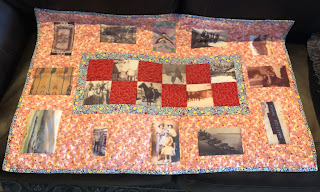In the western heritage culture, the term long line might refer to the length of a rein on a team of horses.
Combine on Bob Hayden-Colfax, Washington
30 head team hooked
My mother, Helen Lloyd, was raised in Waitsburg, Washington. Farming in that area and Palouse Hills of eastern Washington was done with teams of horses or mules. The hills were steep, the soil was great and wheat was the crop.
Combining on McKinney Land
32 head team hooked
Plowing on McKinney Land
These pictures are from Helen’s collection, but not from her family farm.
Can you imagine the daily chore of caring for this many horses in the team? Daily chores of feeding and watering the team, in the morning, at noon and at night. At noon, the dream was team was unhooked and watered and then re-hooked to the equipment. If you count the horses or mules in the team, there are 25-33 head. (And they are hard to count in the picture!). And don't forget that the men that worked the teams and helped with harvest also had to be fed! That is another story!
A team took a long line of leather rein from the teamster driving the team to the lead team.
At Fort Walla Walla Museum, in Walla Walla, Washington, there is an excellent life size display of a team hooked to a combine. It was one of my Dad’s favorite displays. He loved teams and grew up in the era of using teams to feed cattle as well as put up hay. On a trip there Dad was like a kid in a candy store explaining to me all the details of the workings of such a large team, from the lead team to the wheel team and all points in between. Oh how I wished I had an iPhone to have recorded his explanations!
Don Shaffner viewing and explaining the team!
A replica of the driver, thick long lines in his hands.
The driver of the team even had a can of pebbles next to his seat. That was for an occasional rock thrown at a horse to “giddy up”! Sometimes the long line wasn’t an effective method to encourage a horse to “step up”.
An explanation and example of how a team was hitched with "long lines".




















